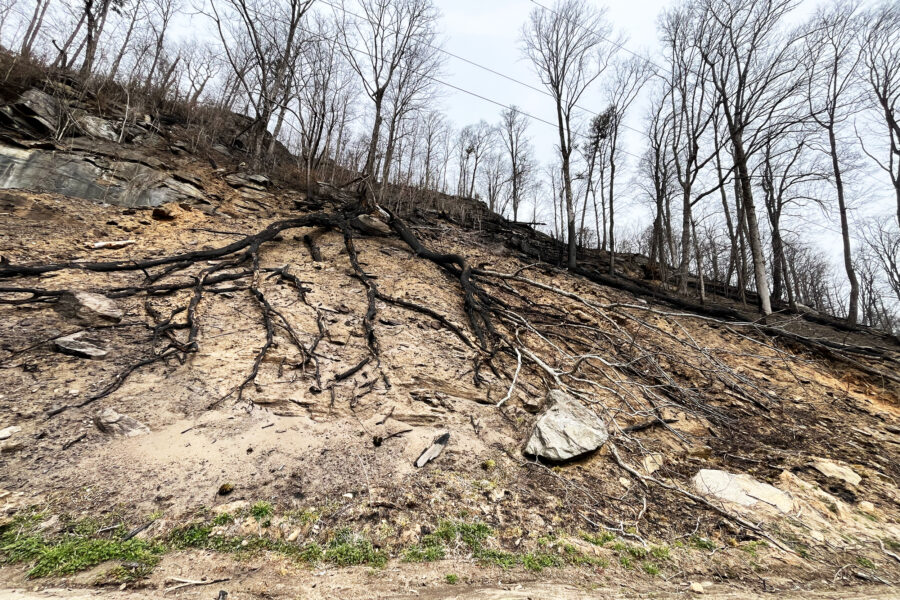The Republican-led House Armed Services Committee took a quietly momentous step Wednesday by passing an amendment requesting a Defense Department report on the security risks posed by climate change.
The importance lies less in the details of the measure—an amendment to the National Defense Authorization Act—than in the political statement from a body that only one year ago tried to block the military from spending money to prepare for climate change.
“The truth is that the department can study this on their own, as they have a wide berth when it comes to assessing threats to national security,” said Rep. Jim Langevin, a Democrat from Rhode Island and the amendment’s sponsor. “But this amendment shows that Congress has the department’s back. It signals that we are not naive to the dangers of climate change to our defense strategy.”
The amendment asks the Defense Department to issue a report within a year identifying the 10 military sites most vulnerable to the many manifestations of climate change, and what steps are needed to protect them. It also asks for a discussion of how climate change will affect top commanders of fielded forces who may have to deal with instability brought on by a climate crisis.
The military has conducted extensive studies on the risks and impacts of climate change to its operations for more than a decade and has issued several significant reports. Defense Secretary James Mattis, a retired Marine Corps general and former head of U.S. Central Command, has repeatedly spoken about how climate change can drive instability and threaten national security, most recently in written testimony he provided to a Senate panel.
For years, Republicans in the House passed amendments to try to block this work, but the Senate never approved the measures. Langevin and other supporters weren’t expecting to gain Republican votes, but after a series of Democrats spoke in favor of the amendment, Rep. Rob Bishop, a Republican from Utah, chimed in.
“Whether the first four pages are accurate or not,” he said, referring to a series of quotes by Mattis and others and a list of projected climate impacts, “there’s nothing dangerous about talking about it. This asks for a report. I’ll support the idea of having a report.”
Rep. Liz Cheney (R-Wyo.) spoke against the measure, but several of her Republican colleagues joined Bishop, and the measure passed on a voice vote. The committee had already included other language in the bill supporting the department’s work on climate change and requiring a separate, narrower report on the flooding from rising seas at military installations.
The apparent change of sentiment is a surprising break from how House Republicans voted on the issue in the past, said Andrew Holland, senior fellow for energy and climate at the American Security Project, a nonpartisan research organization.
“I think that’s a pretty remarkable turnaround in one year, and I think it speaks to the fact that now that Republicans are fully in power they have to responsibly plan and prepare for reality.”
Francesco Femia, president of the Center for Climate and Security, a Washington, D.C.-based think tank, said the committee is sending a message to the White House.
“It’s the House, including Republicans in the House, saying to the administration: This is an issue we think is serious. You should take it seriously too.”
The committee was still marking up the bill Wednesday evening.
About This Story
Perhaps you noticed: This story, like all the news we publish, is free to read. That’s because Inside Climate News is a 501c3 nonprofit organization. We do not charge a subscription fee, lock our news behind a paywall, or clutter our website with ads. We make our news on climate and the environment freely available to you and anyone who wants it.
That’s not all. We also share our news for free with scores of other media organizations around the country. Many of them can’t afford to do environmental journalism of their own. We’ve built bureaus from coast to coast to report local stories, collaborate with local newsrooms and co-publish articles so that this vital work is shared as widely as possible.
Two of us launched ICN in 2007. Six years later we earned a Pulitzer Prize for National Reporting, and now we run the oldest and largest dedicated climate newsroom in the nation. We tell the story in all its complexity. We hold polluters accountable. We expose environmental injustice. We debunk misinformation. We scrutinize solutions and inspire action.
Donations from readers like you fund every aspect of what we do. If you don’t already, will you support our ongoing work, our reporting on the biggest crisis facing our planet, and help us reach even more readers in more places?
Please take a moment to make a tax-deductible donation. Every one of them makes a difference.
Thank you,














